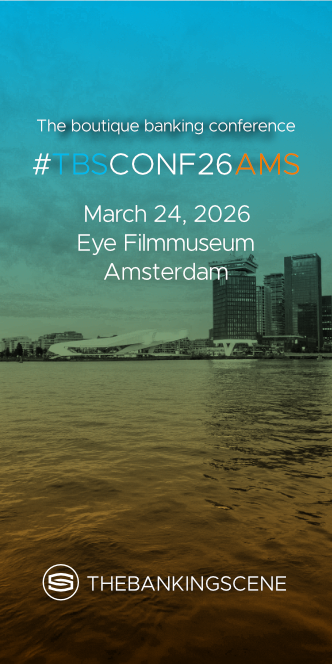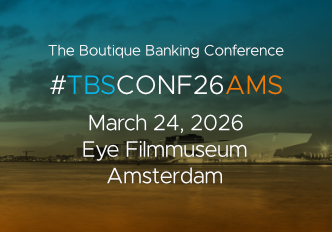
Insights & Opinions
When your bank decides to become a green energy supplier: Rabobank hunting for Eneco
Wed, 24 Jul 2019

My personal favorite banking news article last week was the ones where Rabobank was courting Eneco to take over the company.
For the ones who are not familiar with Eneco: it is as an energy supplier active in the Netherlands, Belgium, Germany, and the UK. Its main shareholders are 44 local municipalities from the Netherlands, of which Rotterdam is the biggest with 33% of the shares. These municipalities now intend to sell their shares and Rabobank is one of the candidates for the takeover.
In the past, I have been writing about the banks that realize that financial services alone are no longer enough to be truly relevant for their customers.
I already detected the following new roles for banks:
- Your bank, your security guard
- Your bank, your real estate manager
- Your bank, your transport manager
Looks like we may be adding a new one on that list soon: your bank, your green energy supplier.

We are not there yet. Currently, there are 4 more parties interested, of which Rabobank is one, in a joint venture with investment company KKR Infrastructure. Nevertheless, it is highly fascinating what directions banks are looking for to increase their relevance for their customers.
Are they putting their money where their mouth is?
Rabobank has a very clear mission: Growing a Better World Together. Actively supporting sustainable housing is part of that. Their point of view is: “we cannot create a greener society, but we can actively support our clients and partners in lowering their ecological footprint”.
One of the early existing initiatives is the green mortgage, where the interest fee is also linked to the durability of the house (“Groene Hypotheek”). Rabo Groendepot is another one, where customers get access to finance to “green up” their house, in 2 years after signing a mortgage.
The official reason
Rabobank believes that collaborating with a company like Eneco, which has a very green reputation in the energy sector, may help in their ambitions to become ‘bank of the energy transition”. Where possible, Rabobank likes to push the Dutch economy, and to further extend society as a whole, to greener energy consumption.
An interesting fact is that their farming background pushed Rabobank as one of the first banks towards wind energy investment. Farmers asked for it, and so Rabobank provided it.
So by taking over Eneco, they can have a stronger footprint on the direction of society towards more sustainability and ecology. Together they can provide better services and they are better prepared to direct society towards a greener and better environment.
That’s very interesting because many bankers talk about beyond banking but this is probably the clearest example that I witnessed thus far in the market of a bank that is trying to get out of his comfort zone to provide better services for their customers, and in a very human way.
Possible hidden agenda: extra customers
The fact that both companies have millions of customers, businesses as well as retail, has probably also played a role. As these companies get more intertwined, partnerships and cross-selling opportunities are easier to realize. This was not even a hidden agenda, Rabobank is pretty clear about it.
Since we talk about packaged services of energy, and there is the same trend in banking so if you could bring those 2 together you can have a very strong case to consumers and can lock them in on a match deeper level now you were able to do before.
Possible hidden agenda: business model
The energy sector opened up a long time ago. They know the pain banks are experiencing today. By adding additional services in their offering, energy suppliers achieve to increase their fee revenues to compensate to decline in the commodity called electricity and gas.
By getting a foot in the door, Rabobank can learn from first hand how to tackle this new way of banking.
Possible hidden agenda: the value of data
More data means better insights, we all know that. What would happen if you could combine both energy and bank data?
One of the easy ones I heard thus far was that banks should become an intermediary to find the best energy supplier for their customers like you already have independent players who do that today.
Of course, by taking over a supplier, you lose independence. On the other hand, I am pretty sure there are many creatives out there that can find new opportunities. It sure brings Rabobank closer to the creation of a platform that goes way beyond banking.
Scary or convenient? I let you answer that question.
One of the comments I read on social media related to this article was the smart usage of this energy data was in pet insurance. It was Menno Van Leeuwen that mentioned it. He heard about an insurance company for pet insurance products that did their prospection based on increased consumption of energy of consumers.
Imagine you translate this into the context of Rabobank taking over Eneco and you have a completely different business model for the bank and a very strong value proposition for the insurance business.
Banking for humanity
My personal opinion is that Rabobank effectively wishes to increase its relevance in society, and by taking over Eneco it hopes to play a dominant role in the debate on banking for humanity.
I am very curious whether they will be able to take over Eneco, and if they do, how this will impact their offering towards their customers.


